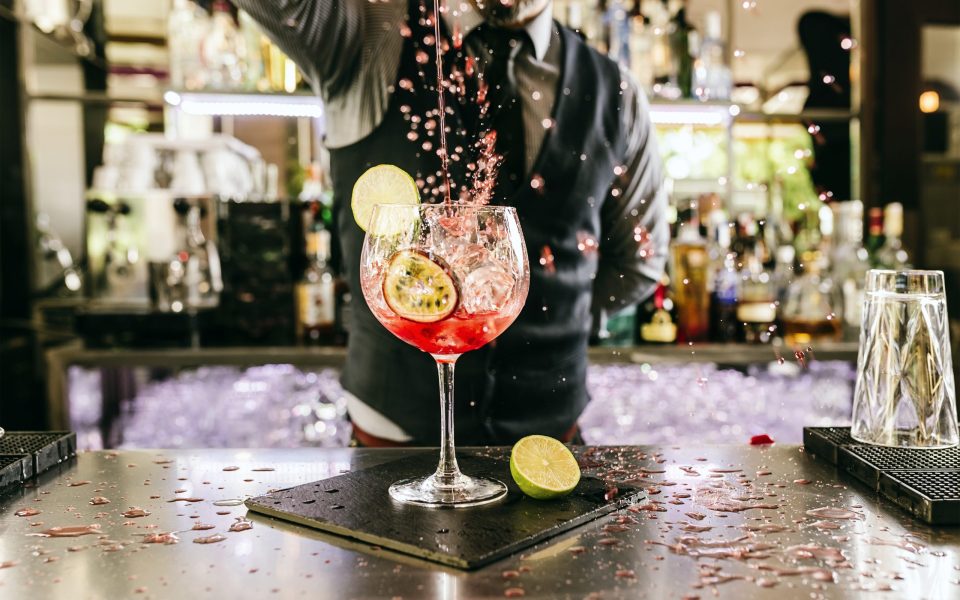My son started busing restaurant tables at Natty Greene’s Kitchen + Market a few months ago, acting on a piece of advice I dropped that, unlike most of the other gems I send his way, he actually took.
“Learn to work in a restaurant,” I told him, a whole bunch of times. “If you can stay sober and show up on time — and, frankly, sometimes even if you can’t — you will always be able to find a job no matter where you are.”
Like all of my life’s lessons, I came by this one the hard way.
I started in the biz when I was 15, mopping floors and stocking the three Snack Shack kiosks scattered throughout the Roosevelt Field mall on Long Island. We usually worked in pairs down in the truck tunnels beneath the mall: loading misappropriated shopping carts with boxes of hot dogs and racks of buns, jars of mustard, sleeves of cups and their lids, cases of frozen pretzels and giant bags of salt, then getting them upstairs to unload. The preferred method was to kick the cart into a two-wheeled wheelie, then back it onto the escalator and ride it up. The first time I attempted this I blew the dismount and dumped a stack of hot dog buns onto some people at the bottom.
I later transferred these skills to an opportunity at Charlie’s Snack Bar & Deli, also at the mall. Charlie’s bears the distinction of being the first place from which I was ever fired.
I landed my first bartending gig before I was a proper bartender, as a freshman at Loyola University of New Orleans. It was a Cajun dance, the job offered by another student who recognized that I knew my way around the bottle and the glass. It was held at a neighborhood community center out in one of the river parishes, and I remember they spread salt over the parquet floor before the music started and they scraped along in a wide circle.
I learned to tend bar at a club called Rosy’s Big Easy on Tchoupitoulas Street in New Orleans, taught by one of the best: Kevin McCaffrey, who in his prime was the fastest I’ve ever worked with. He came from an old New Orleans family, a pedigree that required he take ballroom dancing lessons throughout his youth — you know, for cotillions. Behind the bar he was the picture of grace.
He showed me how to pour properly from a bottle and jerk a cocktail shaker, to handle high volume and why we never scoop ice with a pint glass. He taught me that a clean bar is a happy bar, and that you don’t have to go home but you can’t stay here.
I was able to parlay that experience into bartending gigs all over New Orleans — I used to get fired a lot — and a few in New York. I’d even get offered jobs when I was visiting Las Vegas, which happened a lot more then than it does now.
About the only city I’ve ever been in where I wasn’t immediately offered a bartending job was Greensboro, where I’ve noticed we sometimes have problems getting the square pegs into the square holes.
I had been a food writer for six years at that point and a bartender for 10, so it was an easy trick to convert into a fine-dining waiter, a role I played until 2004 when my journalistic circumstances dictated that I get out of the game.
Up to that point, restaurant work paid for diapers and groceries, knocked out a bill or two and financed my own bad habits. Before that, as a full-time bartender in New Orleans, I made more than most white-collar workers my age. And before that, in college, a couple shifts a week gave me enough walking-around money to cover most — but not all — of life’s little incidentals.
That last part, I think, is what got through to my son, who is off to college in the fall.
Me, I’ve still got a good pair of beat-up boots with gel insoles, a set of waiter’s black-and-whites in my closet and my old wine opener which now rests in a kitchen drawer. Worse comes to worse, I’m ready to go.
Join the First Amendment Society, a membership that goes directly to funding TCB‘s newsroom.
We believe that reporting can save the world.
The TCB First Amendment Society recognizes the vital role of a free, unfettered press with a bundling of local experiences designed to build community, and unique engagements with our newsroom that will help you understand, and shape, local journalism’s critical role in uplifting the people in our cities.
All revenue goes directly into the newsroom as reporters’ salaries and freelance commissions.


Leave a Reply